During the 25th annual Jeonju International Film Festival, award-winning South Korean actress and singer, Lee Jung-hyun made her directorial debut with the dramatic short Toe-Tapping Tunes, alternatively titled Going to See the Flowers, in which Jung-hyun plays, Su-mi, a woman suspended in overwhelming grief and anonymity by a society and system that fails the most vulnerable.
In Toe-Tapping Tunes, the determined Su-mi walks brusquely into a local hospital, upon entering the patient ward, she begins screaming for her mother at the top of her lungs. In the ward she confronts the doctors and nurses on their wards asking why they won’t release her mother who’s well enough to eat three meals a day so is well enough to be discharged. Despite the medical staff insisting that her mother isn’t well enough to be released, they do so in order to appease the argumentative daughter.
Once home, Su-mi does her best to get her mother to eat the light broths she prepares for her, but to no avail.
Unemployed and with no source of income to care for her mother, Su-mi tries to sell their home, but is told by the realtor that the market is bad, even worse than during the IMF crisis of the late 1990s. Nothing she seems to do is working. Her attempts to apply for social assistance as their family home being worth more than the prerequisite amount set by the government, makes them ineligible for welfare. The same home that they’re not making any from either as rental property or sale. Unfair life can be when we’re at our lowest. Seeking to grasp onto any ray of hope that things can be better, Su-mi sees a poster for a bus tour to see the cherry blossoms on Mt. Seoraksan, and determines that if she can get her mother well enough to attend the trip, then everything will get better. That there’s a light at the end of the long exhausting tunnel her life has become.
Having to deal with her mother’s cancer has worn Su-mi down mentally, but having to deal with her own chronic illness on top of it all creates a sense of weariness that hangs off of Su-mi’s body that’s almost visible to the eye.
Since her debut acting role in director Jang Sung-woo’s critically acclaimed A Petal (1996), Lee Jung-hyun has made a name for herself as a consummate performer who devotes herself to every role she takes on, including her stage career as AVA, her multi-facated charismatic persona which she made her singing debut in 1999.
Now after a very successful premiere at Jeonju International Film Festival—during which Jung-hyun also served as the festival’s 5th special Programmer of the Year—she’s making a name for herself as a screenwriter, director, and producer with the 28 minute short film. With her portrayal as Su-mi, Jung-hyun shows how adept she is at taking up these numerous roles behind and in front of the camera.
As Su-mi, Jung-hyun gives a great layered performance as a woman slowly unraveling no matter how tightly she tries to hold herself together, and no one seems to be able to see or hear her what she’s really saying. It’s like the more she insists that things are fine, the more obvious it is that nothing is ok. And unfortunately that’s the reality of too many people in today’s society.
In my interview with Jung-hyun, she spoke about her adaptability as a performer and director, the challenges of making an independent short film on a very small budget, and using her own personal experiences and real cases of social neglect as inspiration for the film.
Note: This interview was conducted via translated email correspondence and has been edited for clarity and length.
Throughout your career you’ve played a variety of characters who’ve lived in different time periods throughout Korean history, even the dystopian future, worked various jobs, existed in different strata or status of society, and were all in different places emotionally. Is there anything specific about each of them that you as their performer found to be similar?
In my debut film Flower Petal in 1996, as well as in the short films Turbulent, Myeongnyang, Alice in the Land of Sincerity, and Battleship Island, I played strong-willed characters, and I think all of the characters in these films are similar to my own usual strong-willed personality. I was the youngest of five daughters, and my father was a police officer, and coinciding with my debut, my father retired, so I effectively became the head of the household.
Fortunately, my debut in the film Flower Petal at the age of 15 allowed me to work as a child actor and model from a young age, which enabled all my sisters to complete their education and marry well. The maternal love in the movie Peninsula feels similar to the maternal love I have for my two children now.
Would you say this similarity between the characters and yourself, a similarity, is what drew you to playing them?
I think the first step is important. If that image was successful, then similar characters kept coming in. The movie Flower Petal was a really difficult character, but after playing the role of a possessed girl there, almost all of my roles since then have been tough characters, and I think audiences like it better when I play tough characters. In fact, it led to the movie’s success at the box office.
I dreamed of becoming a singer since I was a child, but I ended up debuting as an actor after passing an audition by chance. I’ve loved singing and dancing so much since I was a child that I did Michael Jackson’s moonwalk and sang Madonna’s songs at kindergarten. I feel happiest when I get to play new characters and express myself through acting, whether on stage or on screen. Seeing the audience enjoy my performance makes me even happier and grateful.
As a singer and performer on stage known for playing multiple characters with each of your songs, I think it would be easy to say that the theatrics of performing came natural to you as you’re an actress, but I think the opposite could be true?
It wasn’t particularly difficult… It was just always fun. When acting, I don’t usually try to act, but rather I just let it come naturally, thinking of the character as my usual self and acting based on my awareness of the surrounding circumstances.
To me, the way you developed different on stage personas as Ava, may have been complex as you performed multiple characters, sometimes within one concert, live in front of different audiences each time for different events.
I say this because I think taking on the role of writer, director, and actress for your first independent film project, gave you the ability to switch modes during the pre production, and filming stage for this short film.
Thank you so much for recognizing my village. It was really tough. Above all, we had to shoot more than ten scenes a day with a small budget of 5 million won, and we had to move locations and finish within three days, so it was hell.
As the director, I couldn’t let my spirits falter, and since all the staff were volunteering their talents, I had to take on all the junior staff’s tasks while considering everyone’s feelings during filming. Then, when the camera rolled, I had to fully immerse myself in my character. It was mentally and physically exhausting, but when the camera rolled, I focused all my energy on acting. Standing on the cliff edge made my concentration even sharper, so fortunately, the transition to acting went smoothly.
Was it always your intention to play Su-mi or did you decide to do so after you completed the screenplay?
Since we had to start filming within two weeks of completing the script, there was no time to cast actors, and since we didn’t have the production budget, we couldn’t offer guarantees, so I had no choice but to do it myself. Additionally, I didn’t feel confident that I could convey the character in such a short time. However, since I wrote the script myself, I knew the character well, so I thought there wouldn’t be any problems with the transition and just went ahead with it.
Next time, if I have a better environment, I want to shoot leisurely and sit in front of the monitor and focus only on directing.
Why did you have to begin production so quickly after completing the script? Two weeks is a very narrow window to begin the process arranging filming locations, obtaining permits, and finding cast and crew.
The staff who were supposed to help me were working on other projects, so I didn’t have time to coordinate their schedules. Fortunately, I was able to quickly find the location using the internet and Google Maps.
There was no need to scout large venues, so it wasn’t difficult to get permission right away.
The film begins very suddenly with the increasing rhythmic beat of a drum that instead of leading a natural crescendo changes to lighter, happier music that in a way causes the audience to assume that the film will be light hearted and comedic, when in truth it really isn’t.
Yes, the script was based on the 2022 Changshin-dong incident in Korea, and the circumstances were quite dark, so rather than making the film equally dark, I wanted to make it bright and fun to convey the message. When it was screened in Jeonju this time, I was secretly happy to see that the audience thought it was a lighthearted movie but ended up crying at the end, which meant that the message was well conveyed.
Can you speak to your reasoning for beginning the film in such an upbeat way and if it was in your original script or perhaps conceived during the production process?
I had the idea for the script from the beginning. I completed the story while thinking of my late mother as I went cherry blossom viewing with pop music playing in the background. My mother passed away from cancer, but she refused treatment until the very end and wanted to go cherry blossom viewing, so we fought a lot. On the one hand, I felt regret. I wish I had taken her on one last cherry blossom viewing trip, but I couldn’t. So, I decided to approach it with joy and hope, and that’s how I completed the script.
My condolences on the passing of your mother.
Thank you.
I think the Changshin-dong incident is a very unfortunate and sad occurrence that highlights the ways legal red tape and governmental administrative policies can cause the most vulnerable people in society to fall through the cracks. Your film does a great job of addressing this and how the epidemic of loneliness in modern society creates situations where people like Su-mi are left to struggle with their own mental health issues in isolation.
What was your creative process in developing Su-mi’s fragile psychological state in the script and your performance?
I used religion, though I’m not actually religious, but everyone around me is. While some are truly passionate believers, I’ve also seen others who go because their parents or family insisted. Others go to church for Christmas to receive church gifts, and then to Buddha’s Birthday to get bibimbap (temples often serve free food, and since they’re vegetarian, bibimbap is often served).
I found it fascinating that there were such conflicting religions, and I was also impressed by the fervent believers’ fervent prayers and reliance on God. So, I set up Su-mi as someone who, with no one to turn to, relies on religion, and she endured mentally until she collapsed.
The reason I chose Catholicism over other religions is because it has “holy water,” a physical tool to defeat the devil. Holy water is like a shield, a bodyguard.
Because a hospital is a place where quiet is valued and required for the peaceful recovery of patients, Su-mi’s introduction as someone unafraid to bring attention to herself immediately causes the audience perhaps rather unfairly, to question her motives and if she truly cares for her mother.
When Su-mi forced her mother to leave the hospital after causing a disturbance and returned home, there were demand letters from various university hospitals on the shelf. When Su-mi first caused a disturbance at the hospital, a message briefly appeared on the nurse’s computer monitor stating that she had not paid her hospital bills and had been hospitalized for a long period of time. Su-mi has continued to keep her mother hospitalized for several years without paying the hospital bills.
She does this because she has no money and cannot find a job due to her chronic illness. She intentionally causes disturbances to confuse hospital staff and force her mother’s discharge in order to avoid paying hospital bills.
Apparently, there are people who actually get discharged this way. I checked with different university hospitals and they confirmed that one or two people a month avoid paying hospital bills and flee, and most of them are people in difficult circumstances. Fortunately, the hospital only sends demand letters and takes no further action.
Additionally, Su-mi has a congenital illness, so she cannot find employment and only works part-time at home. The house is related to one of South Korea’s real estate issues. The Changsin-dong mother-child incident was a case where people who should have received protection from the state were denied it simply because they lived in a shack, and they died alone at home.
Once Su-mi is home with her mother it becomes quite clear that she’s not equipped financially and physically to look after someone in need of around the clock medical care, but still, Su-mi does her best to stay positive that her mother will get better.
As you mentioned, she prays often and fervently and sprinkles holy water on her mother often, and I noticed Su-mi has multiple figurines related to Christianity, but also references to her mother being a Buddhist. Can you talk about Su-mi’s faith and the depiction of religion in the film?
I thought it would be interesting to portray her as someone obsessed with religion. I actually saw someone sprinkling holy water while walking down the street, and I thought it was really funny. So I incorporated that into the character of Su-mi.
For her parents, I thought it would be interesting for them to have different religions. How much must the sick mother have hated her daughter Su-mi to sprinkle holy water on her? It was also interesting to imagine how they would have clashed under their different religions when the mother was healthy.
Despite being a devout Christian, and taking time to visit a church, Su-mi, never actually seeks counsel and help for herself. The scene where she enters the confessional but doesn’t speak to the Priest on the other side is heart breaking.
She’s clearly under enormous stress and feels isolated with the strain of caring for her mother. I saw this as not just Su-mi’s fear of losing her mother but also herself under the weight of everything she’s carrying on her own.
Yes, Su-mi, who had always lived a hard life because of her mother, couldn’t show her struggles to anyone. Not even to the priest, whom she always wanted to impress. I thought that just going somewhere where no one was around and crying would be a little comforting to Su-mi, who found it difficult to cry.
For many people asking for help means surrendering control to someone else. That they’ve failed, and when her request for help is rejected, she falls into despair. But when she finds a poster for a cherry blossom viewing tour, she vaguely thinks that her mother will recover and be able to go on the tour.
Is this theme of isolation, loneliness and fear of being seen as a failure in caring for an ailing parent the main theme you wanted to address with TOE-TAPPING TUNES; the isolation that only children experience when caring for a terminally ill parent?
It just came from my own experience. As I mentioned earlier, I felt bad that I couldn’t take my mother, who was battling cancer, on a cherry blossom viewing trip. Su-mi must have been exhausted from caring for her for so long and was not in her right mind, so she saw a kind of illusion or fantasy. In reality, my mother passed away as soon as she came home and couldn’t even go to the bathroom.
Another theme that I noticed in the film is food. The importance of meals being eaten. I know this may seem like an odd comparison and question, but in the variety show Stars Top Recipe at FunStaurant on which you’re a regular cast member, you pay very close attention to the details in preparing meals for your family.
For anyone who’s seen the show, which I have, it’s obvious food is one of your love languages. Was this also an inspiration for you?
The reason why I chose muk (mukul, a type of black bean paste) is because when my mother was undergoing cancer treatment she vomited a lot, so the only food she could eat was soft and sour muk dishes. That’s why I included the setting where Su-mi’s mother also chooses muk.
As someone who was taking care of her mother, I wanted to feed her something, and muk was the only food I could find among all the other foods. And the fact that the muk on the table is always there means that my mother has already passed away.
In your portrayal of Su-mi I noticed that the way you move your body is mostly in contained, and tense movement. Almost jerkily as though she’s someone being very conscious of every move they make, but when she walks it’s either with the hurried pace of someone trying to get places by a specific time, or she’s walking slowly like someone completely discouraged.
Talk about the physical challenges of playing a character with two very distinct ways of being physically and how they reveal her true mental and emotional state when she’s incapable of speaking them.
Yes, Su-mi is always being chased. She’s running away. She doesn’t have time, so she has to feed her mother quickly and save her, so I expressed that with hurried movements.
Could you tell us about your technical approach to filmmaking, including the cinematography and costumes? You made some interesting choices in how the audience views Su-mi. Early on, the camera often looks up at her from a low angle, while in other scenes, such as the church sequence, the camera is positioned high up, making her appear small and fragile.
Thank you for your insight. When I was working on the storyboard, I chose a lot of dramatic angles to express Soo-mi’s presence. Her lines are strong, but she’s actually weak, so I used a lot of angles looking up from below.
To me this film acts as a cautionary tale for us to pay attention to the people in our lives, and look at the big and small things they do. What they say and don’t say. There are many people struggling, in need of help but are afraid to ask for it because they’re afraid of being judged and told they’re not doing enough.
Above all, there are many welfare blind spots in South Korea. There are cases where citizens who should be protected are not, and where the country’s welfare system is being abused. I completed the script with the intention of raising awareness of this fact and ensuring that the “Changshindong Mother and Child Incident,” which was the talk of the media two years ago, is not forgotten.
For many who do reach out for help, they’re rejected because they don’t meet specific social and financial criteria, so they’re left to fend for themselves until they slowly fade away beyond a point they can be seen and reached.
I really enjoyed your performance and direction of TOE-TAPPING TUNES, so I’m definitely looking forward to the next project. Filming your second movie a month after your directorial debut is quite impressive. What would you say has been your biggest lesson throughout the process of creating and premiering the film that you’ll take into this new project?
The biggest lesson is… with a small production budget, try to avoid taking on all the work of production, acting, directing, and staff members all by yourself. It was really hard, but when I collapsed, everyone collapsed, so I filmed while laughing and encouraging everyone.
Every day, I cleaned up the set, came in at 11 PM, prepared for the next shoot until 2 AM, and woke up again at 5 AM to go to the set. I started crying for two days straight.
I hope others can work happily with a more generous budget. Otherwise, it’s best to write a script that doesn’t require a large budget. I’m filming my graduation project in June, and it’s also about the socially disadvantaged. I’ve saved up a little more money to film it on a more generous budget than my previous projects.
Humans always grow and learn new things about themselves through new challenges and experiences. As an actor, and now as a writer and director, what new insights have you gained about yourself?
“If you persevere and work hard until the end despite wanting to give up, you will be rewarded.”
It’s truly rewarding to be invited to film festivals and interviewed by such wonderful people like you. I wanted to give up, but… I think I persevered and worked harder, and these great results followed.
Carolyn Hinds
Freelance Film Critic, Journalist, Podcaster & YouTuber
African American Film Critics Association Member, Tomatometer-Approved Critic
Host & Producer Carolyn Talks…, and So Here’s What Happened! Podcast
Bylines at Authory.com/CarolynHinds
Twitter & Instagram: @CarrieCnh12
#JeonjuIFF2025 #kcrushinterviewwithToeTappingTunesfilmmakerLeeJunghyun #kcrush #filmmaker #LeeJunghyun #kcrushamerica #kcrushmagazine #filmfestival #SouthKoreanActressLeeJunghyun #koreanfilm #koreanfilmmaker #ToeTappingTunes #25thAnnualJeonjuInternationalFilmFestival #directorialdebut

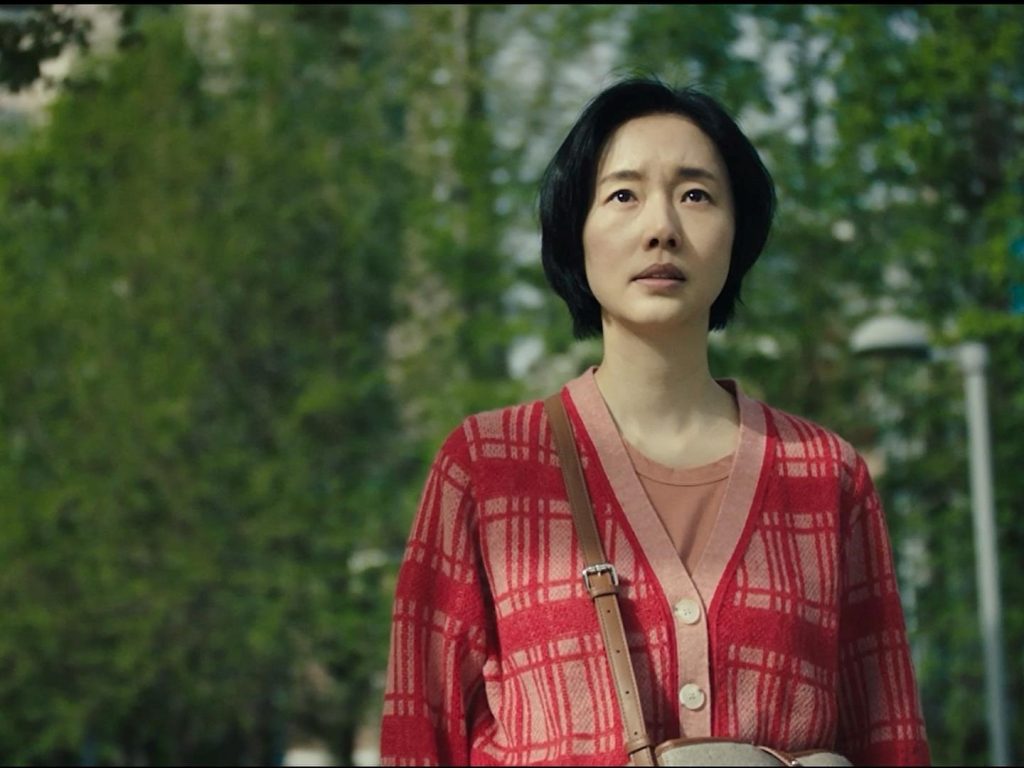
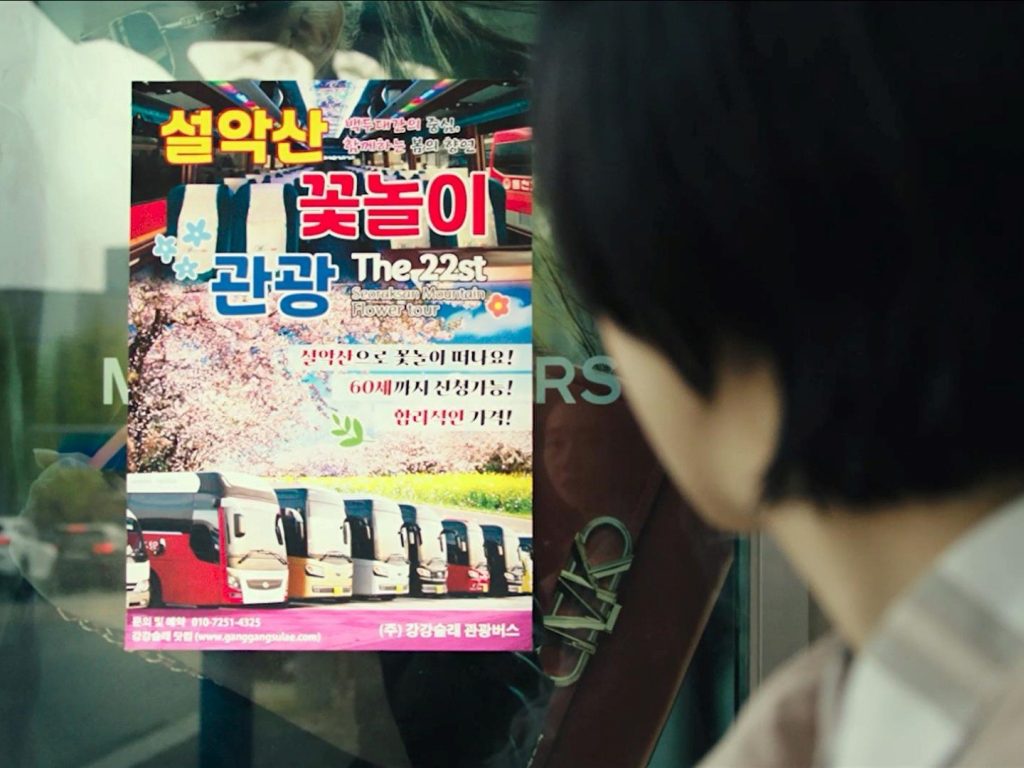
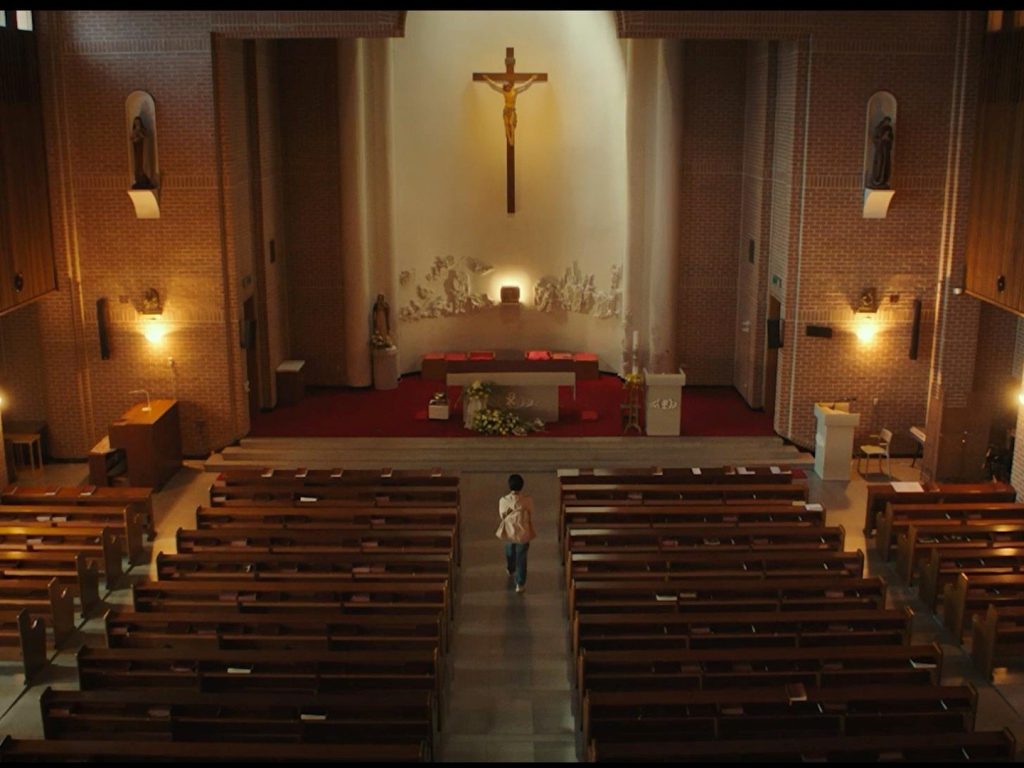
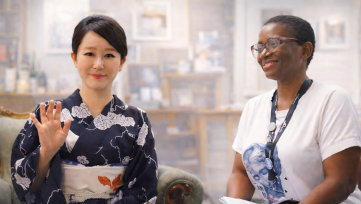
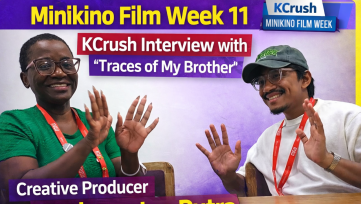
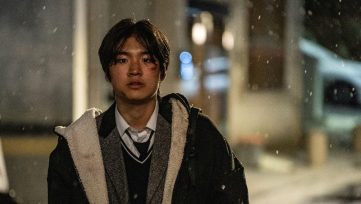
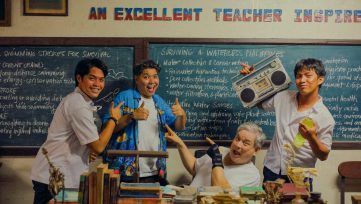
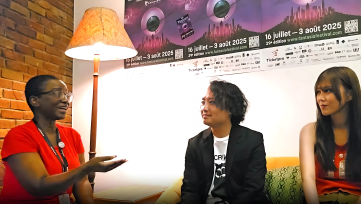
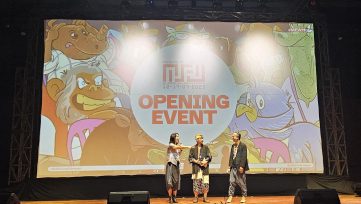
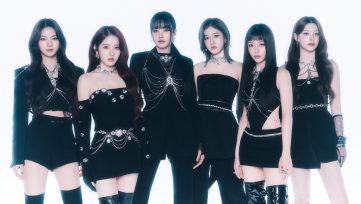

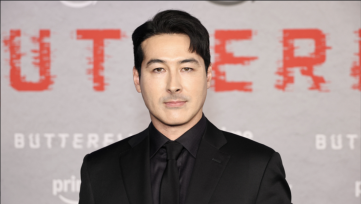
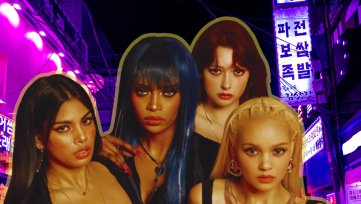
Leave a Reply